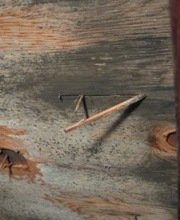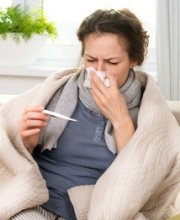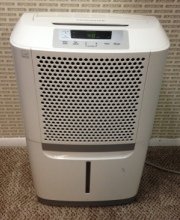Find a Mold Specialist Now
Click or Call, Toll-Free 24/7
Mold and your lymph nodes
When you’re suffering health problems related to mold, lymph node swelling is common. People often refer to it as “swollen glands” and enlarged lymph nodes are a common symptom of any kind of infection, from the common cold to much more serious conditions. We’ll explain what causes lymph nodes to swell and tell you what to do if exposure to mold in your home is affecting your lymph nodes.
First, though, what exactly are lymph nodes?
Lymph nodes are part of your immune system. They break down pathogens (such as bacteria and other infective agents and foreign bodies) and filter toxins for removal from your body. They contain lots of white blood cells and lymphocytes that help fight infection.
There are more than 700 lymph nodes in your body. They are round or oval in shape and range in size from half a centimeter to two centimeters in diameter, though they can swell to several times that size. Lymph nodes are clustered in your armpits, groin, neck and abdomen. Some are close to the surface of the skin and can be easily felt, while others are much deeper.

What causes swollen lymph nodes?
The most common cause of swollen lymph nodes is infection. Infection can be bacterial, viral, parasitic or fungal (such as mold) in nature. To fight infection, your body will produce extra white blood cells and lymphocytes, which collect in the lymph nodes. The body also transports the pathogens to the lymph nodes where they are broken down. All this causes the lymph nodes to swell, sometimes to several times their normal size, making them easier to feel. Your lymph nodes may also become tender or painful to the touch.
Infection is not the only thing that can cause swollen lymph nodes, just the most common cause. Other possible causes include inflammatory conditions and some types of cancer. If your lymph nodes are swollen and you don’t know why, see your doctor (and even if you think you know what’s causing the swelling, you probably need to see a doctor for treatment).
How is mold lymph node swelling diagnosed?
Swollen lymph nodes are a symptom of infection or other illness. You don’t actually treat the swollen lymph nodes. You have to treat the infection or other illness. Of course, before you can treat it, you have to figure out what it is.
If your lymph nodes are swollen, you probably have other symptoms, as well. If you’re suffering from a mold-related illness, symptoms may include coughing, sneezing, a runny nose, a sore throat, a headache, discomfort in your chest, or difficulty breathing. You can read more about symptoms of mold-related health problems here. See your doctor and describe all the symptoms you are experiencing. If you’ve been exposed to mold in the home, let your doctor know that, as well.
Your doctor will examine you and take a thorough history. A physical examination will include palpating (examining by touch) your lymph nodes. He or she may do some tests, such as blood work, a throat culture or a urine analysis (mold or the mycotoxins produced by mold may be excreted in the urine if you have mold-related illness). If you are coughing anything up, your doctor may take a sample of that for analysis. Your doctor may order a chest x-ray, too.
 Mold found under carpets
Mold found under carpetsHow is mold lymph node swelling treated?
The treatment, of course, will depend on the specific type of infection you’re experiencing. Lymph nodes may be swollen due to mold-related pneumonia, bronchitis, sinusitis, eye infections, skin infections or other mold-related conditions. Often, antibiotics and/or antifungal medications are prescribed.
In addition to receiving medical care, you’ll need to have the mold removed from your home. If you continue to be exposed to mold, lymph node swelling will not decrease and your condition may even worsen despite medical treatment.
If you are suffering from mold-related health problems, it is recommended that you arrange for someone to handle the mold removal for you so that you are not further exposed to mold that may exacerbate your condition. We suggest scheduling a free consultation with an experienced mold removal professional to discuss your needs. Even if you plan to handle the mold removal yourself, you can benefit from some free expert advice, including safety tips to help prevent inadvertent exposure to mold during the cleanup process. Follow the link to find qualified professionals offering free consultations in your area.
Return From Mold Lymph Node To Our Main Mold Health Issues Page




